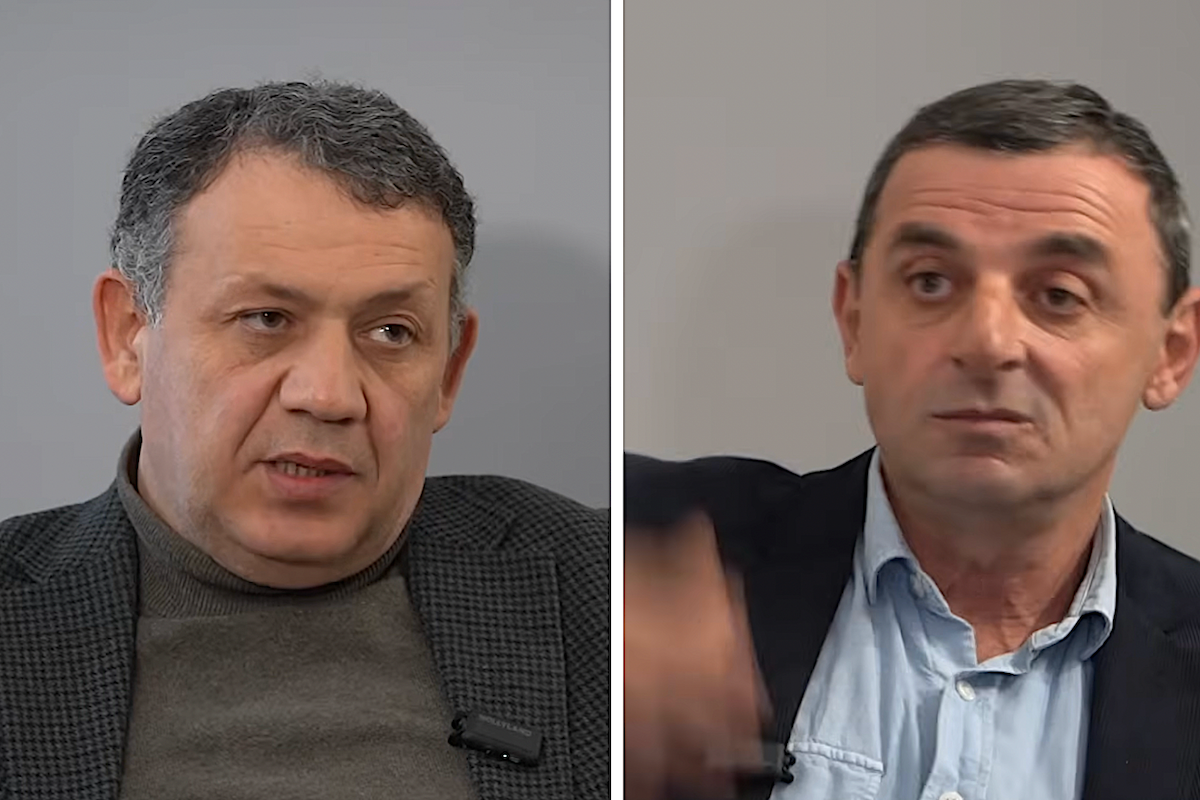Tax authorities gain access to bank accounts of Armenian citizens: Benefits and risks
Armenian tax authorities’ access to bank accounts
Since April 2024, when the law amending the Tax Code came into effect, the Armenian State Revenue Committee has gained access to citizens’ bank accounts. Throughout this period, taxpayers and experts have been discussing the potential risks associated with this legislative change.
Experts and government officials have provided forecasts and explanations on the following issues: potential outcomes or consequences, emerging risks, and any benefits for the country’s economy.
- Tax revenues in Armenia decline: Reasons and future expectations
- Armenia’s economic growth forecast: 8% with favourable conditions, 4% otherwise. Opinion
- Armenia’s 2024 budget characterized by “unprecedented reserve fund”
“There are no guarantees against personal data leaks”
Anna A., a 30-year-old government employee, is required to declare her income under the new law that came into effect. Starting in 2025, this law will apply to all resident citizens of Armenia.
Anna fears that access to her personal banking information poses risks of potential data leaks.
“There’s no guarantee that our data will be securely protected and that there won’t be leaks. We’ve had such precedents in the past, with data leaks from various government bodies. I wouldn’t be concerned if the country had a high level of protection for digital systems,” she says.
Moreover, she finds the stringent state control over citizens unacceptable and emphasizes that such an approach fosters additional mistrust towards the government system.
Information collected “to assess risks”
According to the law approved by parliament, the tax authority is granted the right to receive statements and summary information about citizens’ bank accounts. This summary information will include “data on the taxpayer’s bank account, including the currency, the balance as of January 1 and December 31 of the tax year, as well as the total amount deposited into the account and the total amount withdrawn during the tax year.”
The justification for the law states that “the collection of information is carried out as part of tax control and for the purpose of risk assessment.”
The Revenue Committee receives summary information about each taxpayer’s bank account from commercial banks through an electronic system via the Central Bank.
As for the bank statement, the tax authority requests it from the taxpayer through their personal page in the electronic reporting system. The taxpayer must respond within three business days of receiving the request.
If the taxpayer does not provide the statement within the specified period, the Revenue Committee obtains it based on a court decision.
“State moving towards total control”
Experts are discussing the potential risks and consequences of the legislative changes. Information security expert Samvel Martirosyan also commented on the matter.
While he positively views the legislative changes in terms of “combating the shadow economy, abuses, corruption, terrorists, and other negative elements,” he notes:
“The problem is that on the opposite side are civil liberties, privacy, freedom of speech, and a thousand other phenomena that are inconvenient for the state system.
All the tightening measures leading to transparency in citizens’ lives are being implemented without balancing mechanisms and without public oversight, which would prevent the creation of superstructures in Armenia with unlimited capabilities. Such oversight would help avoid abuses, the use of information by corrupt officials for personal gain, and the application of state institutions’ leverage against opponents.”
Parliament approves improved version of the bill
Commenting on information security expert Samvel Martirosyan’s perspective, lawyer Arsen Sargsyan said he had the same concerns during the discussion of the bill’s preliminary draft:
“These concerns arose during the discussion of the first version, which mentioned the tax authority’s control over all banking operations of an individual or company. Now, with the improved version of the bill and the introduction of the requirement for a court decision to obtain a bank statement, my concerns have been somewhat alleviated.”
Arsen Sargsyan views it positively that the law provides the state with greater tools for combating tax evasion:
“Now, entities engaged in hidden activities will face serious problems. In case of a significant discrepancy between the amounts in bank accounts and declared income, they will either have to provide convincing explanations or prove the legality of their tax payments in court. As a result, the tax collection process will become more efficient. The essential prerequisite for this is that all parties must act in good faith.”
Risks exist: law may affect investment attractiveness
However, the lawyer also sees risks. He believes the law could significantly impact the attraction of foreign investments:
“I believe the adoption of the law was premature. We are trying to attract investments to our country, but with this change, the country’s attractiveness will decrease. Investors consider the factor of banking secrecy as well. If they see that the mechanisms of tax authority control are extensive, they worry about the possibility of total control. As a result, when choosing a country for investment, a businessperson might prefer a state with greater guarantees of bank secrecy.
It is no coincidence that many countries, including European ones, strictly maintain bank secrecy. The thought that banking activities are reliably protected instills a certain confidence and peace of mind in businesspeople. And this is not necessarily driven by the desire to evade taxes.”
Armenian banking union also predicts risks
The Armenian Banking Union has expressed opposition to the legislative changes. Here is their response to our written inquiry:
“The Armenian Banking Union voiced its disapproval back in 2022, when the draft law on providing tax authorities with information about individuals’ accounts was introduced. Although the final version of the law is less stringent in terms of control compared to the initial draft, we believe its usefulness and effectiveness are questionable and will pose serious risks in the relationship between tax authorities and citizens. The most problematic aspect of the law is the collection of summary information on all of a citizen’s accounts in all currencies and from all banks.”
Chairman of the revenue committee: “Citizens are protected by tax secrecy”
However, the Chairman of the Revenue Committee, Rustam Badasyan, assures that legislative changes maintain tax secrecy:
“Citizens are protected by tax secrecy. The tax authority does not have the right to disclose information received about their bank accounts.”
He clarifies that the law does not grant access to all of an individual’s banking operations, but rather to the inflows and outflows of funds.
“I cannot see, for example, what you ordered today or how much you paid, but I can see how much money was deposited into your account and how much was withdrawn,” he explained.
According to Rustam Badasyan, access to citizens’ bank accounts will allow the tax authority to compare the inflows and outflows with declared income. In case of discrepancies, the agency will take measures to determine the reasons:
“There may be explanations for the discrepancies, such as non-taxable income. But it might also turn out to be taxable income, and the individual will then responsibly declare their income.”
Experts are still uncertain about the impact these legislative changes will have on the country’s economic indicators. They say conclusions can only be drawn after some time.

























